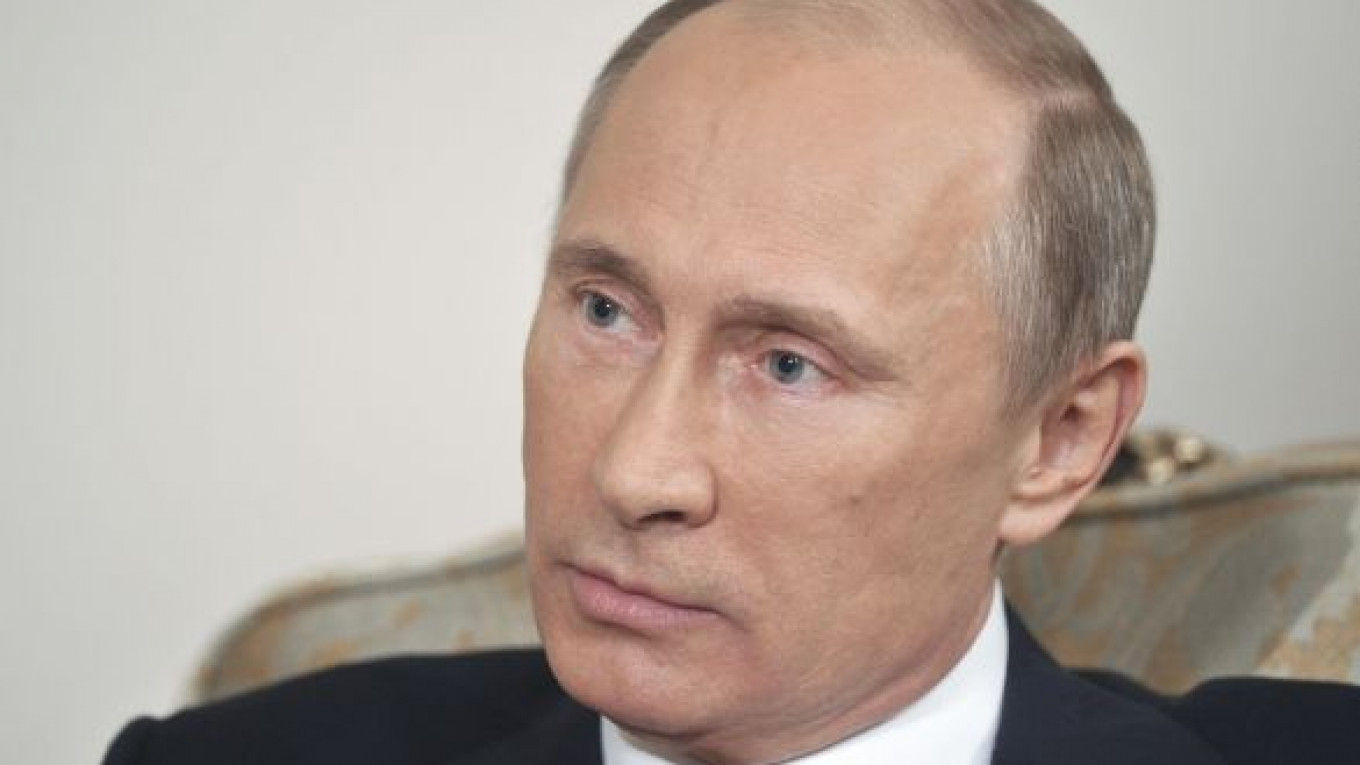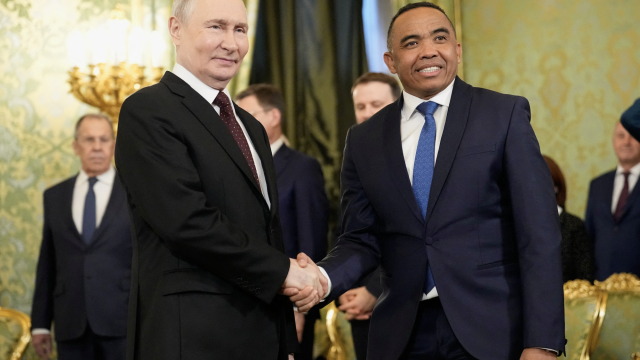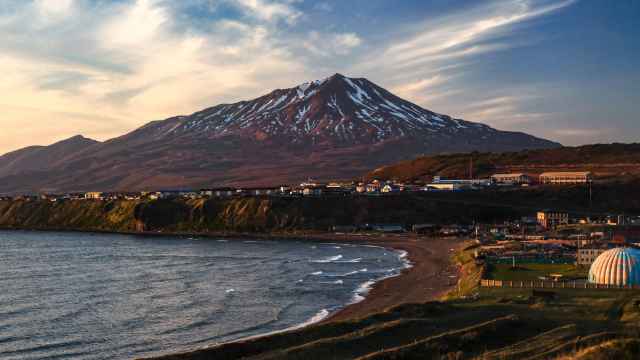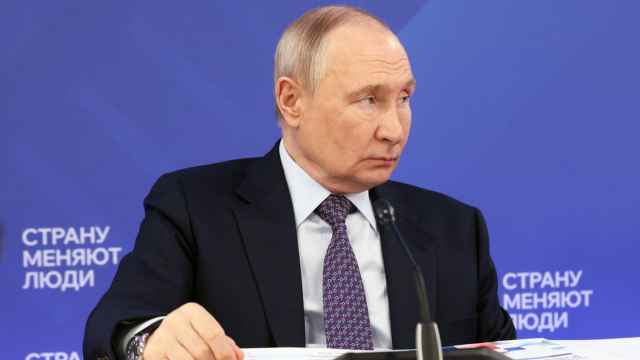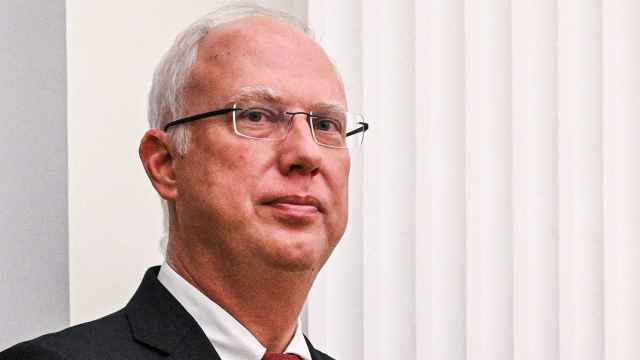The worst of the economic crisis is over and the economy is under control, but it is time to steer the economy back into growth mode, President Vladimir Putin said at an investment forum Wednesday.
He was speaking at the Russia Calling! VTB Capital event in Moscow, where he told captains of industry and investors that structural changes to increase productivity and the effectiveness of budgetary spending, while reducing production costs, were needed to accomplish this.
"The critical phase of the [economic] crisis has been overcome; the current risks are more or less under control. However, the hopes for a quick recovery of the global economy, if anybody had those, did not come to pass. The crisis of the current economic model has a structural, long-term character," Putin said.
Putin said Russia had to focus on “coordinated steps and new sources of [economic] development.”
The president referenced the St. Petersburg economic forum, where many other Group of 20 countries agreed on the effectiveness of such an approach, which includes the regulation of domestic labor markets, fighting tax evasion and modernization of infrastructure.
At the same time, each country has to find its own appropriate way out of the economic crisis, he said.
For Russia, this means tackling "a low level of effectiveness," which concerns the productivity of nonresource-based industries, Putin added.
While taking second place in Europe after Germany and fifth worldwide when it comes to GDP, the country's industry and technology production volumes are half the size of most developed countries, the president said.
Such a wide gap between consumption and production levels is very dangerous he added.
An expert from the investment group PPF at the forum, who asked to remain anonymous, said that in order to increase production output and reduce reliance on the natural resources industry, the country needed to find a way to encourage skilled nationals to stay in Russia and keep their money here.
"It appears that Russian people are either afraid or do not believe in the country's future. Many skilled professionals choose to leave Russia, buy properties overseas and send their children to Western universities. Just in case [something unpredictable happens in Russia]. They do not want to build their lives here," he said.
To combat the situation, the government has to come up with a way to manage people and encourage them to use their skills locally, without being afraid, the expert said.
The president's stated solution is the restructuring of the country's labor market.
There needs to be fewer low-paid jobs and more high-paid positions in modern industries and with attractive career potential, Putin said in his address.
This labor market strategy was first introduced by Prime Minister Dmitry Medvedev at the investment forum in Sochi last week and repeated by banking executives during the first day of the VTB forum in Moscow.
To achieve higher productivity and stimulate salary growth, the government will need to develop programs to stimulate labor mobility and encourage people to travel within the country in search for a better job, the prime minister said.
Such programs may result in higher unemployment, but if managed correctly, people who are left without jobs because their positions are taken by more skilled personnel, will have a chance to go back to school to improve their qualification and then re-enter the industry as more skilled workers, which will be helpful for the economy, the president said Wednesday.
This will also help with increasing non-natural resource export volumes, which currently only account for a mere 5 percent of total export, Putin said.
Export channels will need to be open to small and medium-size business, the president said. Together with clever marketing and export insurance programs, machinery export can grow.
"There used to be a time when the former Soviet Union countries saw a lot of cars and other technology from Russia," the expert from the PPF Investment group said. "To revive that, the demand for Russian products needs to be recreated, which is very difficult, but possible with smart investments," he added.
Contact the author at [email protected]
A Message from The Moscow Times:
Dear readers,
We are facing unprecedented challenges. Russia's Prosecutor General's Office has designated The Moscow Times as an "undesirable" organization, criminalizing our work and putting our staff at risk of prosecution. This follows our earlier unjust labeling as a "foreign agent."
These actions are direct attempts to silence independent journalism in Russia. The authorities claim our work "discredits the decisions of the Russian leadership." We see things differently: we strive to provide accurate, unbiased reporting on Russia.
We, the journalists of The Moscow Times, refuse to be silenced. But to continue our work, we need your help.
Your support, no matter how small, makes a world of difference. If you can, please support us monthly starting from just $2. It's quick to set up, and every contribution makes a significant impact.
By supporting The Moscow Times, you're defending open, independent journalism in the face of repression. Thank you for standing with us.
Remind me later.


